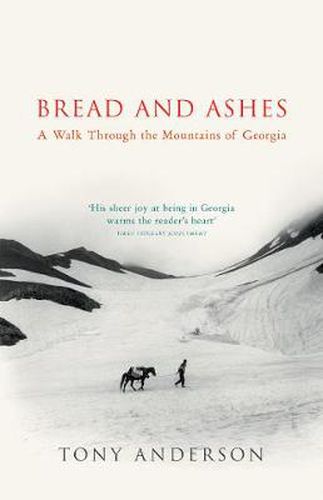Readings Newsletter
Become a Readings Member to make your shopping experience even easier.
Sign in or sign up for free!
You’re not far away from qualifying for FREE standard shipping within Australia
You’ve qualified for FREE standard shipping within Australia
The cart is loading…






Tony Anderson set out in the summer of 1998 to walk through Georgia. He wanted particularly to visit the Georgian mountain tribes - Tush, Khevsurs, Ratchuelians and Svans - to discover if they shared a common mountain culture, and to test the old idea of the Caucasus as an impenetrable barrier from sea to sea. From Azerbaijan to Svaneti, Anderson found communities where the old customs and beliefs still triumphantly survive, despite years of Communist oppression and the terrible uncertainties since the collapse of the Soviet Union. Throughout his journey Anderson refers back to many other visits to Georgia, to the politics of independence, to the war in Abkhazia and Ossetia, to the civil war and Shevardnadze’s accession to power, to the history of these people at one of the great crossroads of the world. It remains an abiding mystery that Georgia has managed to survive at all, devastated time and again by the vagabond hordes from the steppes and torn between the mighty empires that struggled over it. But survive it has with a vibrant culture still intact and, in the mountains, still deeply connected to its ancient ways.
$9.00 standard shipping within Australia
FREE standard shipping within Australia for orders over $100.00
Express & International shipping calculated at checkout
Tony Anderson set out in the summer of 1998 to walk through Georgia. He wanted particularly to visit the Georgian mountain tribes - Tush, Khevsurs, Ratchuelians and Svans - to discover if they shared a common mountain culture, and to test the old idea of the Caucasus as an impenetrable barrier from sea to sea. From Azerbaijan to Svaneti, Anderson found communities where the old customs and beliefs still triumphantly survive, despite years of Communist oppression and the terrible uncertainties since the collapse of the Soviet Union. Throughout his journey Anderson refers back to many other visits to Georgia, to the politics of independence, to the war in Abkhazia and Ossetia, to the civil war and Shevardnadze’s accession to power, to the history of these people at one of the great crossroads of the world. It remains an abiding mystery that Georgia has managed to survive at all, devastated time and again by the vagabond hordes from the steppes and torn between the mighty empires that struggled over it. But survive it has with a vibrant culture still intact and, in the mountains, still deeply connected to its ancient ways.